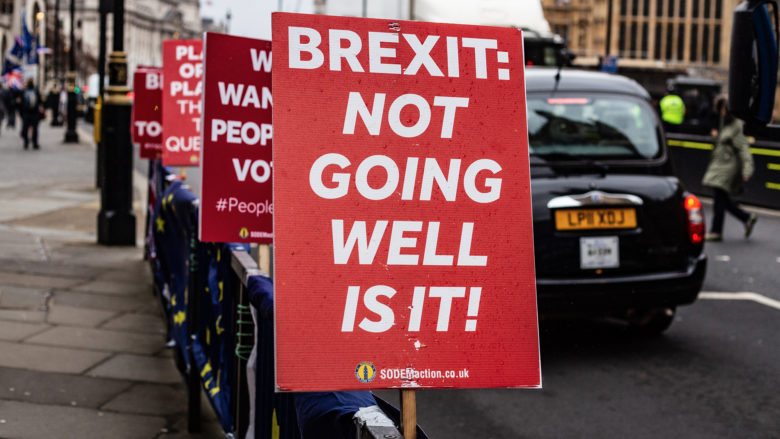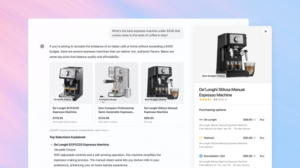Qriously
Brexit & Startups: „It Just Makes Everything a Royal Pain in The Ass“

It’s now many years that Christopher Kahler lives in London. Although he founded his startup Qriously in 2010 in Vienna, he soon went to London. Nine years later, Qriously exited to Brandwatch. With Qriously, Kahler and his co-founders have built a tool that can measure the opinions of consumers and voters in real time.
The startup was able to correctly predict, for example, the outcome of the Brexit vote or Trump’s election victory. Accordingly, Kahler has many insights into Brexit not only as a startup founder, but also as a market researcher. In an interview with Trending Topics he talks about the mood in the British startup scene, the impact for young companies of Brexit and why he would come back to Vienna to start a new company.
Qriously left Austria several years ago to operate from London. Why did you choose to do so back then?

Christopher Kahler: Candidly, the funding options in the UK were better, and overall I think London is still a better place to set up a B2B startup, and looking back it was the right call. That was some time ago, and the landscape has definitely changed. I would definitely consider starting the next gig in Vienna!
Would you leave London, if you would have to decide today?
Not right now. Brexit notwithstanding, London is a magically diverse place with endless opportunity. In the 8 years we’ve been here, we’ve also built up a strong network and things are working. That said, Vienna holds a special place for all the founders so a return is always an option for the next one!
How is the mood in the ecosystem regarding Brexit? Is the majority for or against it?
I think there is a lot of Brexit fatigue. The initial waves of consternation have subsided, almost alarmingly. I don’t think – and our data supports this – that a lot of people have changed their minds, so the dialog is quite stagnant as well, no one seems to be convincing anyone outside their own circles, which are normally quite homogeneous. At our company, most folks are Remainers, but some Leavers have joined and that has sparked some interesting conversations. I think the Brexit debate is largely emotional, and it’s difficult to debate emotions without being an asshole.
How are startups in Great Britain affected by the looming Brexit?
Less than I would have thought. I think it’s affected startups and founders who were considering starting here vs. startups and founders based here. I’ve heard a few founders say they’re looking harder or longer for continental money, so that might have had an impact but that could be purely anecdotal.
What would be best for startups? A Deal-Brexit, No-Deal-Brexit or another referendum on Stay or Leave?
Another referendum would be a close call. I think there’s a misguided view abroad that most people. Post referendum I regret the decision and it would swing the other way if they revoted. Our data suggests that if a second referendum were to be held today, Remain would have an edge, but a disconcertingly thin one. Note that the first referendum was not legally binding, rather an advisory measure. The reason it’s moving forward is purely political legitimacy, not law. I’d be in favour of a binding second referendum, and take the risk.
Will it be harder to get talents to Great Britain after Brexit?
Yes, but it’s tricky to say to what degree. Invariably, some folks won’t move so the funnel will get weaker. That said, top talent can normally always be attracted, so core engineering, for instance, might be affected more than top management.
Will it be harder to do business in the EU after Brexit? Does it even affect digital products?
That really depends on the deal (if there is one!) and this is an easy answer, but I don’t see things getting better. It will be a question, if it goes through, of how bad. I’m really biased by my circle, but in years of listening to both sides, I’ve not heard a single, rationally compelling reason of how Brexit could help startups.
Do you see other disadvantages for startups after Brexit?
Apart from the directly economic disadvantages, and depending on the deal, it just makes everything a royal pain in the ass. On the flipside, I have a perverse fantasy that if Brexit does go through, it could foment a reactionary swing back to the union that is very strong. Basically, I want to believe the EU is antifragile, to take an idea from Nassim Taleb.





























